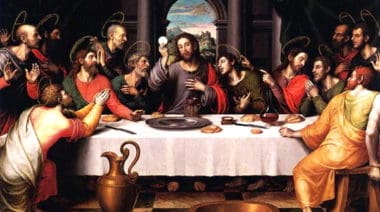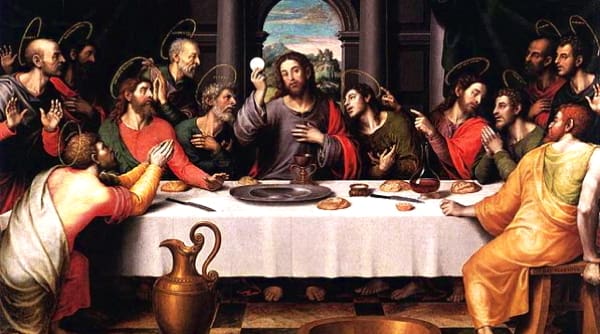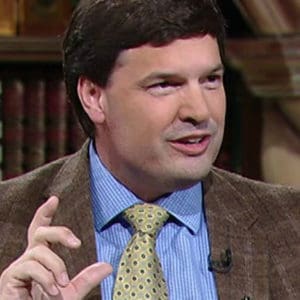A troubled reader writes…
 “Although I am a convert to Catholicism, I am sad and offended that the Catholics would forget what Jesus would do with regards to breaking bread with any of his children. I too am a Eucharistic Minister and I would never turn anyone down from breaking bread with their fellow man nor make them feel less of a child of God. I was a Lutheran and to say that our wine and bread does not have the same meaning as a Catholic makes me sad. I do so much for the Church because I try to follow in Jesus’s footsteps as best that I can. Separating religions when we all believe in the same God is what will continue our wars amongst the children of God. Jesus did not invent Christianity that separates one another.”
“Although I am a convert to Catholicism, I am sad and offended that the Catholics would forget what Jesus would do with regards to breaking bread with any of his children. I too am a Eucharistic Minister and I would never turn anyone down from breaking bread with their fellow man nor make them feel less of a child of God. I was a Lutheran and to say that our wine and bread does not have the same meaning as a Catholic makes me sad. I do so much for the Church because I try to follow in Jesus’s footsteps as best that I can. Separating religions when we all believe in the same God is what will continue our wars amongst the children of God. Jesus did not invent Christianity that separates one another.”
This comment from one of our readers touches on one of the most painful situations in the Church today: Christians do not live in the communion they ought to have with one another. This comes up frequently in discussions about Holy Communion. Sometimes at a wedding or a funeral we find ourselves wishing that the differences among Christians were not there. We want a deeper communion with one another than we actually share. It is at exactly this moment our faith is tested.
We profess One, Holy, Catholic, and Apostolic Church, but there can be moments when our confidence is shaken over whether the Roman Catholic Church is really holy or catholic. We might even be puzzled by the ecclesial discipline that excludes Christians from receiving Holy Communion when they are not in full communion with the Mystery of Christ’s Body. It is in this moment of testing that we can make profound and painful mistakes in judgment about both what we believe and what we practice even to the point of making rash accusations regarding the Church. Those who faithfully deal with this difficult test discover the beatitude of becoming a peacemaker in the Body of Christ.
This particular test of our faith requires prayer and penance on our part, but also a careful study of our faith. Here, we will consider what we can study to help us think through this difficulty. There are in fact three things we should consider. First, we need to understand where our desire for unity comes from and how it is realized. Second, once we see the source of our unity, we can more clearly see the source of our disunity. Third, once we more clearly see where division comes from, what we need to do becomes self-evident.
1) Where Our Desires for Unity Come From: The holy desire for deeper solidarity with one another in the Lord comes from the Holy Spirit and burns deep in the heart of the Bride of Christ. This is because this unity is something Christ prayed for the night before He died. In the Gospel of John, Jesus pours out His Heart to the Father, asking that we “might be one” as He and the Father “are one” (see John 17:20-23).
The Prayer of Christ: His prayer, in fact, is infallible and this is why we profess that the Church is one even in the face of painful divisions. Indeed, the unity we share with those who are baptized into the mystery of Christ is always greater than what divides us. The mutual desires we share with one another for deeper solidarity and friendship in the Lord are indeed powerful signs pointing to this mystery of unity.
As followers of our Crucified Master, we believe that the Father really heard and truly accepted the prayer of His Son for all His followers. This is why we believe the Lord really is our great High Priest — He is the One who makes our prayer right and just. The more we are in communion with Him, the more our prayer is made acceptable to the Father and it is only within the mystery of this communion with God that our unity with one another is restored and made perfect.
In Part II, we will continue to look at the other two sources of our desires for unity: The Prayer of the Church and Work of the Holy Spirit. In Part III, we will consider the source of our unity and what we need to do once we more clearly see where division comes from.
PS from the Editor: If you want to read more of Anthony’s insights on the topic of prayer, don’t miss his book, Hidden Mountain Secret Garden. Anthony has an unusually profound understanding of mystical theology and lives a life of deep prayer. This book is an experience like no other. Among his many accomplishments and responsibilities, Dr. Lilles now teaches theology for the Avila Institute.
+
Art for this post on the beatitude of peacemaking: The Last Supper, Joan [or Juan] de Juanes, 3rd quarter of 16th century, PD-worldwide, Wikimedia Commons.




